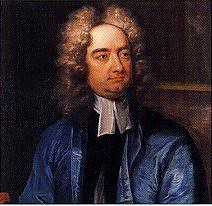Movie: Quentin Tarantino: A revenge-fantasy movie on the culture-cutting theme of slavery in 'Django Unchained'
In the much reviewed new movie 'Django Unchained,' directed by violence-prone Quentin Tarantino (Reservoir Dogs, Pulp Fiction, Inglourious Basterds here), this movie is styled a "slave-era spaghetti western" and "a plaftorm for a bloody, profanely comic-pop entertainment" over one of the most important reviews to date, by Erin Aubry Kaplan. I can't recommend strongly enuff that your read Kaplan's offering.in the Los Angeles Times (Dec28,2k12). The movie was released June 12,2k12, and is now being assessed in the turn-of-the-year surveys that will dominate much entertainment news reporting until after the New Year.
In the meantime, shift your gaze from critique of the director, especially on racial grounds, to a critique of the very prominent black actors among the stars — like Jamie Foxx, Kerry Washington, and Samuel K. Jackson.
Shay Riley's blog, Booker Rising, reports:
"Instead of just at white director Quentin Tarantino, asserts [Constructive Feedback,] the conservative blogger in Georgia:
If Spike Lee was serious, he would channel his anger over 'Django Unchained' towards Jamie Foxx, Kerry Washington, and Samuel L. Jackson [black actors in the Tarantino-directed film — refWrite]. While Spike Lee engages in yet another battle with yet another peer movie director — his arguments fail to capture the real issue with the projection of 'Black history' as a 'Spaghetti Western'. IF 'Django Unchained' was a 'Minstrel Show' — Spike Lee would be fighting against the producer but giving the actors 'in Blackface' a pass. It is only the fact that he has a good relationship with Jamie Foxx and Kerry Washington that he has EXCLUDED them from his attacks per their participation in the production.
Constructive Feedback "continues his commentary about racism chasing:
There is no question that Black Progressive operatives [like Lee] understand the ramifications of their criticism of fellow Blacks in good standing [Foxx, Washington, but Jackson not included?]. It is easier for [Black Progressives like Lee] to express rank 'intellectual dishonesty' by targeting their words at a 'White director' — giving the 'Black supporting actors' the ability to claim 'This is a debate between Lee and Tarentino, not with me'."Of course, so far as I know director Tarantino isn't debating anything with director Lee. This is a debate between Lee and Foxx, Washington, and Jackson, if it is any debate at all. Rather, its most probably a debate between Spike Lee and Spike Lee.
The brilliant Mr Lee, outstanding director himself, is simply itching for his periodic debate with yet another White director. Lee has developed a line about White directors who produce movies with Black themes and using/casting/hiring Black actors for said movies because their excellence as performers calls them to this production. On the issue he puts forward once again, the venerable Mr Lee has worked himself into something of a corner, but he can't pull back (as in "pull his punches") from making his now pro forma (or formula) critique, because the actors have clout and respect from black movie-goers; and the film, tho very tarantino in its stylistics, is one where director and actors seem to have developed a symbiotic relationship with one another for the purposes of the film which centers around a credible black protagonist in a historical depiction of America's old West. Just on the plot level alone, the work that Tarantino and script writers have invested in the motivation of Mr. Foxx's lead character establishes both his historical likelihood and his crediblity, the more fortuitous feature of the story-line is that of his white mentor. I for one don't find the friendship that emerges as incredible, but some Black critics may do so, of course. Yet, by this time in the story, even they may let their defenses down, based on the likeability and solidarity-evoking strength of character played by Jamie Foxx.
'Django' an unsettling experience for many blacks
Plot Summary: Set in th South two years before the USA Civil War, Django Unchained stars Academy-Award-winner Jamie Foxx as Django, a slave whose brutal hjistory with his former owners lands him face-to-face with German-born bounty hunter Dr. King Schultz (Cristoph Waltz). Schultz is on the trail of the murderous Brittle brothers and only Django can lead him to his bounty. The unorthodox Schultz acquires Django with a promise to free him upon the capture of the Brittles dead or alive. Success leads Schultz to free Django, though the two men choose not to go ther separate ways. Instead, Schultz seeks out the South's most wanted criminals with Django by his side. Honing vital hunting skills, Django remains focused on one goal: finding and rescuing Broomhilda (Kerry Washington), the wife he lost to the slave trade long ago. [Her character's very name seems a trivialization of her personhood, as I grew up on the comic strip with the same designation.] Django's and Schultz'e search ultimately leads them to Calvin Candie (Leonardo di Captrio), the proprietor of 'Candyland,' an infamous plantation where slaves are groomed by trainer Ace Woody (Kurt Russell) to battle each other for sport. Exploring the compound under false pretenses, Django and Schultz arouse the suspicion of Stepen (Samuel L. Jackson), Candie's trusted house slave. Their moves are marked, and a treacherous organization closes in on them. If Django and Schultz are to escape with Broomhilda, they must choose between independence and solidarity, between sacrifice and survival. — Trailer AddictYouTube (Dec28,2k12) 4,141,938 hits to date, a very busy webpage.
— Moviethink, refWrite Backpage movies newspotter, analyst, columnist
'Django' an unsettling experience for many blacks
Pastor Matt Blog (Dec29,2k12)


 >br>
>br>









1 comment:
Ever wanted to get free Twitter Re-tweets?
Did you know that you can get them ON AUTOPILOT AND TOTALLY FREE by registering on You Like Hits?
Post a Comment